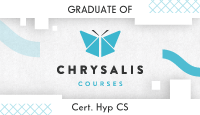What is hypnosis?
Hypnosis is an altered state of mind brought about by a level of relaxation which causes our brain waves to slow down to between 8 and 13 cycles per second in order to lower the consciousness and heighten the sub-conscious until they are level. Once this balance is achieved, it enables the therapist to gain access to the sub-conscious and attempt to alter thoughts and mindsets that no longer serve us. The subconscious is a storage system that holds every thought, decision and piece of information that is absorbed from birth and is ultimately there to help and protect us. However, some of these protections can become limiting to our progress in the world, thus achieving the opposite of its purpose and causing limitations to our being. It enhances an individual’s responsiveness for suggestion in order to make the beneficial changes that they may wish to make in their thought patterns, their behaviours or their physiological state.
Hypnosis is a completely natural state of relaxation, it cannot make you do anything that you do not want to do or that you morally object to. You cannot get stuck in hypnosis and can leave the state whenever you wish to. What hypnotherapy can assist with:
- Anxiety
- Exam nerves
- Fears/Phobias
- Hypno Gastric Band
- Stress
- Weight Management
Stress, Anxiety & Phobias
Stress, anxieties and phobias are the result of an ever-evolving, fast-paced world. The unachieveable expectations and need to control every aspect of our lives results in the mind reaching saturation point, becoming overwhelmed and finally losing control. They can feel so similar, and we tend to talk about them interchangeably. However, although one can breed another, they are, in fact very different in their source.
Anxiety and stress begin with negative thoughts. Therefore, if the mind can create the thoughts, then the mind can resolve them. Stress, typically is a build-up of external factors, however left untreated has the ability to descend into anxiety and phobia which becomes trickier to control and the original source becomes more and more hidden.
Stress
Stress is the result of being overwhelmed by external factors which leaves us feeling unable to cope and feeling out of control. The cause of stress is usually identifiable and Hypnotherapy and Reiki are fabulous tools to relax the mind and body suitably in order to alter the pattern of thought and managing life’s difficulties appropriately. However, if left untreated, a build-up of stress can result in a saturation point which ultimately “blows” out of all proportion and into the realms of anxiety and phobias.
Anxiety
Anxieties are not just fear. Anxiety is one of the manifestations of stress that has taken a journey of its own. Often its origin is not identifiable as the mind has become disjointed from its source and has now become a fear of fear itself. This means that projection is taking place, and often creates scenarios that haven’t even occurred. The mind has become skewed from reality, with unrealistic and irrational thought processes. A constant gut feeling of dread and impending doom creeps in with no realisation of how it got there or how you can get rid of it.
Anxiety can be the trigger from learnt behaviour from our past, if we grew up with peers who could not keep a grip of reality, we are often borne from the same pattern and exhibit similar traits. Our subconscious reaction of fight or flight needs to be re-programmed in order to alter the patterns of the past to create a new future How can hypnotherapy help Hypnotherapy offers the ability to access the subconscious mind using suggestion of positive change and boosting confidence and self-belief whilst simultaneously reducing the escalation of fear whilst in a relaxed state of mind.
By using techniques to identify the source of the anxiety the very same person who was ruled by their anxiety can emerge with the ability to take back their control and alter the reactions pertaining to it in as little as 6 – 8 weeks.
Fears & Phobias
We describe a phobia as an irrational fear of something which has become specifically associated i.e. unconsciously learned response. Usually, there is no conscious knowledge of it’s origination and can affect the way a person lives their life i.e will start to avoid places/situtions that trigger the association.
Through hypnotherapy, there are methods that can be used to locate the initial sensitising event and disassociate the mind from the fear in order for a much calmer reaction, gradually lessening and lessening the reaction until it is either irradicated or much more manageable and appropriate.
Weight Management
Our relationship with food develops over a period of time, often from childhood. How often were we told as children to eat everything on our plate (no matter how full we felt) or that rewards would be in the offering of sweets or desserts? And later on in life, a lot of us tend to develop eating for emotional comfort. Using both non-hypnotic discussion and hypnotic techniques, the weight management programme is designed to get to the bottom of the identifying thoughts and behaviours that have created the weight-gaining issues and then using the same methods as a tool to alter the relationship of the diet and to promote healthy options as the food of choice whilst simultaneously promoting motivation to exercise.
This approach is a way of working with our bodies to create the change that we desire, not by some quick and fast method, but by an ongoing alteration to a conditioned lifestyle.
What is Reiki?
Reiki” (ray-key) is Japanese for ‘universal life energy, and is also a word used to describe a system of natural healing, This tradition was founded by Mikao Usui in the early 20th century and evolved as a result of his research, experience and dedication.
We live in a world of energy that nourishes and maintains all living things. When this energy flows uninterrupted there is balance and harmony within and around us, and we experience a sense of well-being.
There are many variations of Reiki, but in essence treatments can help the body emotionally or spiritually. It is a tradition that is open to any belief system.
Reiki is a process that anyone can enjoy in the normal course of their life. Reiki can be used alongside other conventional or complementary treatment and often helps to provide emotional support during recovery. The practice is taught by Reiki masters / teachers who have trained in the tradition passed on in person from master to student.
The method of receiving Reiki is simple. The recipient remains clothed and lies on a couch and relaxes. The practitioner gently places their hands in a series of non-intrusive positions on or near the body. There is no massage or manipulation. The whole person is treated rather than specific areas.
Reiki practitioners are not trained in diagnosis and will not predict any specific outcome from treatment. If people are concerned about their symptoms they should see a doctor.
What does Reiki Therapy feel like?
Each person experiences Reiki differently depending on their individual needs at the time.
Clients may or may not feel sensations during a treatment. Benefits reported by recipients include deep relaxation promoting a calm, peaceful sense of well being on all levels. Some people feel sensations of heat, tingling, or experience seeing colours, whilst others can have an emotional response, indicating that shifts are taking place, allowing harmony to be restored.
What does Reiki Therapy do?
Reiki is a safe and soothing treatment that can be:
Comforting when life is tough
The relaxing nature of Reiki can be very helpful to people especially at difficult times in our lives. We can all feel overwhelmed or disconnected, sometimes there is a real sense of isolation, both emotionally and spiritually. Reiki treatments can bring feelings of peace, centeredness and an ability to cope better with the challenges of life.
Reiki can be beneficial in circumstances that are short term, but can also support people dealing with long-standing conditions, helping to bring comfort, acceptance and a more positive outlook.

What is Reflexology?
Reflexology theory is rooted in the concept that the body has reflex areas on the feet, hands, and ears corresponding to specific organs, glands, and body parts. By applying pressure to these reflex points, it’s believed that blockages or imbalances in the body’s energy flow can be released or corrected, thereby facilitating improved health and well-being. The practice operates on the principle that stimulating these reflexes can help restore balance and promote natural healing throughout the body.
Stress and Anxiety Reduction:
Reflexology can help reduce stress and anxiety by promoting relaxation and improving mood.
Pain Relief: It may alleviate pain in conditions such as migraines, arthritis, and back pain.
Improved circulation: Reflexology is believed to enhance blood flow, thereby improving oxygen and nutrient delivery to cells.
Better sleep: By promoting relaxation, reflexology can improve sleep quality and help with insomnia.
Enhanced wellbeing: Regular sessions may improve overall health and a sense of wellbeing by restoring balance and harmony in the body.
Detoxification: It can help in eliminating toxins from the body, supporting detoxification processes.
Reduced headaches/sinus issues: Reflexology can be effective in reducing the frequency and severity of headaches and migraines and the effects of problematic chronic sinus symptoms.




